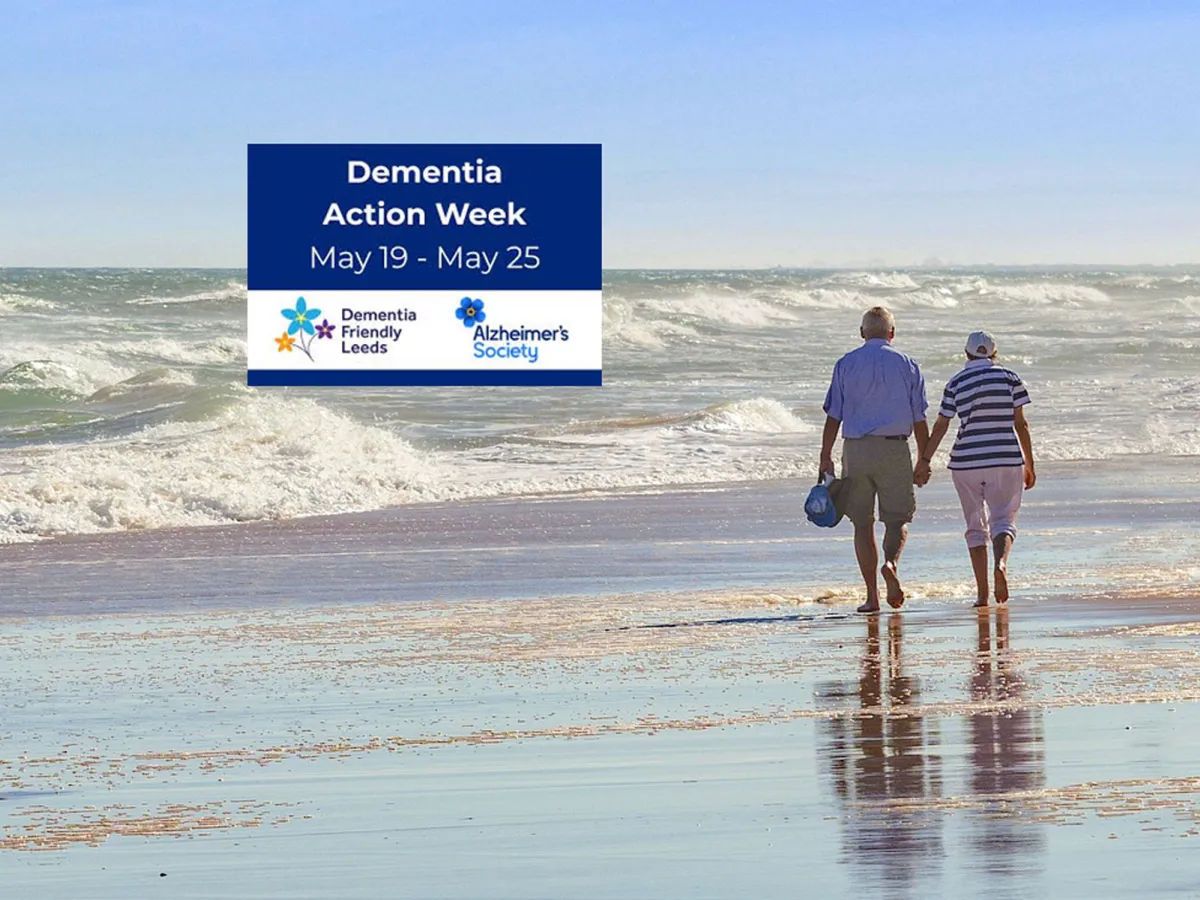
Understanding Lewy Body Dementia and Continuing Healthcare
Lewy Body Dementia – a Progressive and Unique Disease
As part of our series for Dementia Action Week, we’ve explored Alzheimer’s disease, Vascular Dementia, and Frontotemporal Dementia. In this instalment, we’re turning our focus to Lewy Body Dementia (LBD). A complex and often misunderstood condition that brings together elements of both cognitive decline and physical symptoms similar to Parkinson’s disease.
*Please note that this blog post is for information purposes only, and should not be a substitute for medical advice. If you suspect you or a loved one has Lewy Body Dementia, please seek advice from a medical professional.*
At Winston Solicitors, we regularly support families living with the effects of dementia and guide them through the process of applying for NHS Continuing Healthcare (CHC) funding. In this blog post, we’ll unpack what makes Lewy Body Dementia distinct, how it’s diagnosed and treated, and when CHC may be appropriate to help with care costs.
For expert CHC advice call 0113 320 5000
What Is Lewy Body Dementia?
Lewy Body Dementia (sometimes called Dementia with Lewy Bodies) is a progressive neurological disorder. It’s caused by the build-up of abnormal protein deposits called Lewy bodies in the brain. These deposits affect chemicals involved in thinking, movement, behaviour, and mood. Some people are diagnosed with pure LBD, while others have mixed dementia, where Lewy body changes coexist with Alzheimer’s or Parkinson’s disease.

Because LBD affects multiple systems in the brain, it produces a particularly wide range of symptoms. It’s also one of the most misdiagnosed forms of dementia, which can cause delays in accessing appropriate support and care.
Symptoms of Lewy Body Dementia
Lewy Body Dementia shares features with both Alzheimer’s and Parkinson’s disease, which makes it particularly challenging to identify.
Some of the most common symptoms include:
- Fluctuating confusion or alertness - good days and bad days, sometimes within the same day
- Visual hallucinations - often vivid and detailed, typically involving people or animals
- Parkinsonism - slow movement, tremors, muscle stiffness, and shuffling gait
- Sleep disturbances - including REM sleep behaviour disorder, where individuals act out dreams
- Memory problems - less prominent early on, but often develop as the condition progresses
- Autonomic dysfunction - issues with blood pressure, digestion, bladder function, or temperature regulation
- Mood and behavioural changes - including depression, apathy, anxiety, or agitation
People living with LBD may seem relatively well one day, only to require full support the next. This unpredictability can be confusing and distressing for families and carers. It also makes consistent care planning more difficult. Which is one reason why Continuing Healthcare assessments should take account of the full range and fluctuation of symptoms.
Diagnosing Lewy Body Dementia
Because Lewy Body Dementia overlaps with other conditions, diagnosis can take time. Many people are initially misdiagnosed with Alzheimer’s disease, Parkinson’s disease, or a psychiatric condition.
A full diagnosis typically involves:
- Detailed medical history and observation of symptoms
- Cognitive and neurological tests
- Brain scans (MRI, CT, or SPECT)
- Sleep studies to assess REM sleep behaviour
- Ruling out other causes of symptoms
An accurate diagnosis is important because some medications used for Alzheimer’s or psychiatric disorders can worsen symptoms in LBD. For example, antipsychotics can trigger severe side effects in people with Lewy Body Dementia, including worsening confusion, stiffness, or even dangerous reactions.
This makes specialist input vital in diagnosing and managing care for someone with suspected LBD.
Progression and Prognosis
Lewy Body Dementia is a progressive condition, and unfortunately there is currently no cure. The average life expectancy after diagnosis is 5 to 8 years, although this can vary.
As the disease progresses:
- Hallucinations and delusions may become more pronounced
- Movement problems can worsen, increasing the risk of falls
- The person may become more dependent on others for daily tasks
- Episodes of confusion or unresponsiveness may become more frequent
Because LBD involves both mental and physical symptoms, care can quickly become complex. Individuals may need assistance not just with memory or behaviour, but also with walking, dressing, toileting, medication, and managing fluctuating states of awareness.
This complexity is key when considering eligibility for NHS Continuing Healthcare.
For expert CHC advice call 0113 320 5000
Supporting Someone with Lewy Body Dementia
Caring for someone with LBD is challenging. One day they may seem alert and responsive, the next they may be disoriented, physically unstable, or hallucinating. This fluctuation can leave carers feeling like they’re constantly adapting to a moving target.
Support needs may include:
- Supervision to prevent falls or injury during confusion or hallucinations
- Help with medication, particularly Parkinson’s drugs
- Assistance with mobility and transfers
- Emotional support and reassurance
- Night-time care, especially in cases of REM sleep disorder
It’s common for people with LBD to require a multi-disciplinary approach to care, involving input from neurologists, psychiatrists, physiotherapists, speech and language therapists, and dementia nurses. This level of complexity is exactly why CHC should be considered.
What Is NHS Continuing Healthcare (CHC)?
NHS Continuing Healthcare (CHC) is a fully funded package of care provided by the NHS for individuals with ongoing, complex health needs. It covers the full cost of care, whether in a care home, hospice, or in your own home.
Crucially, CHC is not means-tested, so you won’t be asked to sell your home or deplete your savings if your loved one is eligible. Instead, the decision is based solely on the nature and extent of their health needs.
For people with Lewy Body Dementia, the unpredictable and multifaceted symptoms can create a strong case for CHC eligibility. But it often requires persistence, documentation, and expert support to get the right outcome.
Why Lewy Body Should Be Considered for CHC
Because Lewy Body Dementia affects both physical and cognitive functions, it frequently leads to:
- Unpredictable care needs (e.g. sudden confusion, hallucinations, motor symptoms)
- Risks to personal safety, especially during hallucinations or when unsteady on their feet
- Intense levels of supervision, particularly if the person experiences night-time wandering or delusions
- Medication regimes that require careful monitoring
- Physical interventions, such as hoists, mobility aids, and fall prevention measures
- Skilled care to manage complex health-related behaviours or resistance to help
Despite this, applications for CHC are often refused on the basis that symptoms are considered "social" rather than "health-related." In practice, however, many LBD cases involve high levels of nursing need, including personal care, mobility support, and behaviour management.
We believe it is vital that families challenge unjust decisions and push for fair assessment of the true care needs involved.
The Importance of Legal Planning
Alongside CHC assessments, we also encourage families to put in place proper legal protections early on:
- Lasting Powers of Attorney (LPAs) for both health and welfare, and property and financial affairs
- Wills to ensure assets are distributed according to the person’s wishes
- Advance care planning, especially as LBD often leads to rapid or unexpected changes in capacity
Having these documents in place allows loved ones to make decisions with clarity and authority, without having to go through lengthy and stressful court processes. Our Private Client team can give you clear expert advice.
How Winston Solicitors Can Help
We know that living with or caring for someone with Lewy Body Dementia can feel overwhelming. The rollercoaster of symptoms, the emotional toll, and the constant adaptations needed can leave families feeling lost.
Our expert teams are here to:
- Help you understand whether CHC is appropriate in your situation
- Guide you through the CHC application or appeal process
- Work alongside healthcare professionals to ensure a holistic view of the person’s needs
- Put in place essential legal documents such as Wills and LPAs
- Provide practical, compassionate support when you need it most.
A Final Word on Lewy Body Dementia for Dementia Action Week
Lewy Body Dementia doesn’t just affect memory. It challenges movement, behaviour, perception, and dignity. It requires specialist care, nuanced support, and families who are empowered to make the best possible decisions.
If someone you love is living with LBD and you’re struggling to get the help they need, don’t give up. The right advice and advocacy can make all the difference.
For expert guidance on NHS Continuing Healthcare, contact our NHS Continuing Healthcare team at today.
We can also advise you on legal planning for dementia and other long-term health issues. Contact the Private Client team for Wills, LPAs, Deputyships and Trusts.
Email the Wills & Probate team
We’re here to help.

